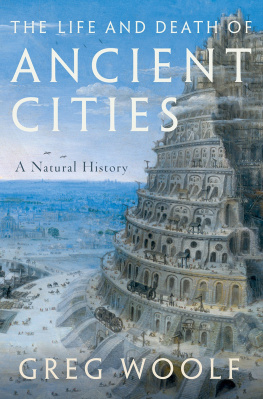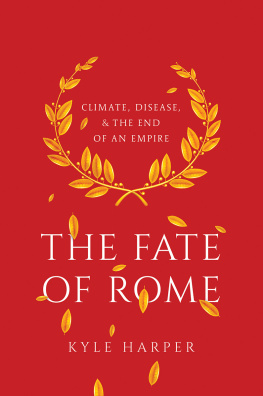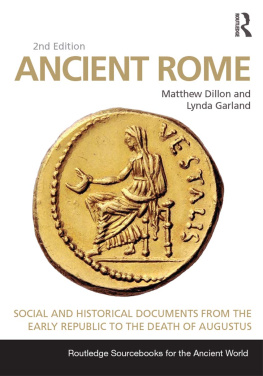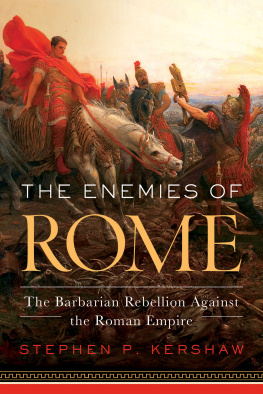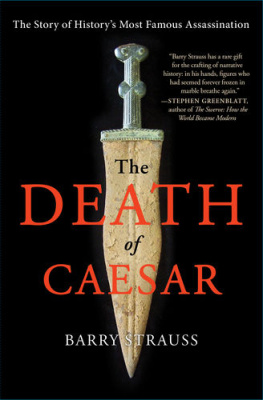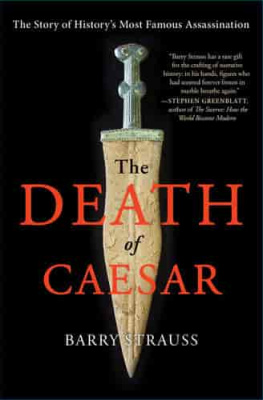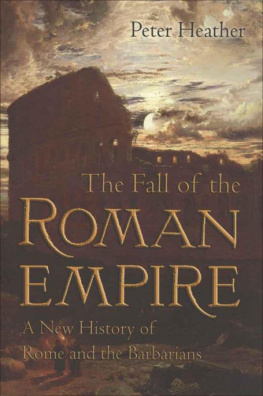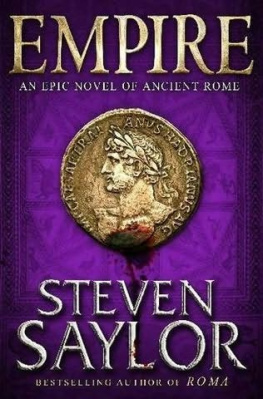ROME
ROME
AN EMPIRES STORY
GREG WOOLF


Great Clarendon Street, Oxford, OX2 6DP,
United Kingdom
Oxford University Press is a department of the University of Oxford.
It furthers the Universitys objective of excellence in research, scholarship,
and education by publishing worldwide. Oxford is a registered trade mark of
Oxford University Press in the UK and in certain other countries
Greg Woolf 2012
The moral rights of the author have been asserted
First Edition published in 2012
Impression: 1
All rights reserved. No part of this publication may be reproduced, stored in
a retrieval system, or transmitted, in any form or by any means, without the
prior permission in writing of Oxford University Press, or as expressly permitted
by law, by licence or under terms agreed with the appropriate reprographics
rights organization. Enquiries concerning reproduction outside the scope of the
above should be sent to the Rights Department, Oxford University Press, at the
address above
You must not circulate this work in any other form
and you must impose this same condition on any acquirer
British Library Cataloguing in Publication Data
Data available.
Library of Congress Cataloging in Publication Data
Library of Congress Control Number: 2012930500
ISBN 978-0-19-960308-4
Printed in Great Britain
on acid-free paper by
Clays Ltd, St lves plc
For my Students
Preface
All histories of Rome are histories of empire. Her rise to power, the long peace, and the even longer decline together form the background to every story told about the Romans. My subject, however, is empire itself. How did it grow? What enabled it to resist defeats and capitalize on victories? Why did Rome succeed when its rivals failed? How did empire survive crises, dig itself in, and replace chaotic campaigns of conquest with stability? How did empire come to coordinate the great flows of wealth and populations on which it depended? How did it evolve to face new needs and new threats? Why did it falter, regain its balance, and then shrink under a series of military blows until it was, once again, a city-state? What circumstances and technologies made the creation and maintenance of an empire possible, in just this place and just at that time? What institutions, habits, and beliefs suited Rome for the role? And what did the fact of empire do to all the beliefs, habits, and institutions with which the world had been conquered? What part did chance play in its successes and its failures?
The long arc that stretches from a scatter of villages on the Tiber River to a medieval city on the Bosporus Straits dreaming of ancient glory takes a millennium and a half. Telling that story in a single volume is perhaps a crazy endeavour, but it has also been an exhilarating one. Perhaps Roman history has no special claim on us, among the many periods of the past we can think about, and that have shaped our world. But as a student I felt the fascination of studying something so vast, an entity that stretched over so much time and space. What could sustain a human enterprise conceived on such a vast scale? How could anything human last so long? Our own world experiences change at an extraordinary rate. Earlier generations, confident of the permanence of their own empires and of the uninterrupted march of progress, were spellbound by Romes decline and fall. For us it is the longevity of Rome that grasps the imagination. My own fascination has not diminished since my student days. Even now the Roman world still sometimes feels like a vast sandpit in which I can play, or else a huge historical laboratory in which all sorts of long-lived processes and entities can be studied. Roman history is like astronomy in that respect. New experiments cannot be designed and carried out. But a vast mass of distant and ancient phenomena can be observed through tiny packets of residual data, and the forces and cataclysmic events that formed the observable universe can be reconstructed. Like astronomers, ancient historians look for patterns and try to explain them. This book is an attempt to explain those that I have observed.
The Roman Empire invites metaphor. Ancients often used a biological analogy: each empire or state had its youth, its maturity, and its old age. One modern historian has used the metaphor of the vampire bat, seeing the empire as a means through which the Romans sucked the life out of peasants and slaves upon whose labour the empire depended. The Roman Empire does not seem to me much like an organic entity, unless it is an epidemic spreading throughout a host population feeding off the energies of the infected until it burns itself out. Analogies from natural science seem to capture the pattern of empire better. The Roman Empire was like a great tidal wave sweeping up more and more water before dissipating its energy. Or it was an avalanche, starting small, accelerated by the patterns of snow and rock across which it moved, and then slowed again at the base of the slope. Either metaphor captures the sense of a grand pattern that starts small, draws in more matter and more energy, and then dissipates. That patternempiremoves through time, and for a while crowds out other patterns, until it dissipates or is overwritten by other great movements. Empire grows, not always smoothly, dominates for a while, and then abates. One former vice-chancellor of St Andrews suggested that I think of this in terms of resonance, the gradual establishment of a pattern of vibration across a vast mass of people and things that eventually loses coherence and breaks down into smaller patterns. That does seem to capture precisely the emergence of an imperial order and its subsequent dissipation. The essence of empire is the assertion of a great pattern at the expense of smaller ones. That pattern is typically less equal and more hierarchical than what went before. New levels of complexity mean some of the rich becoming richer, some of the poor being subjected to harsher discipline, although the social mobility that empire stirs up means there are winners and losers at every level. Materially the pattern of empire involves regular movements of people and things, great flows of taxes and of commercial goods. Those routines of movement are now reflected by traces of roads and ports, the fossilized skeleton around which the soft matter of the human empire once hung. I have tried to give attention to the hard matter. But one of the joys of Roman history is that we can also hear the voices of so many of those caught up in it. I have attempted to capture and report their perceptions of empire as well.
Writing this book I have tried to hold in my mind this sense that empire is a movement through historical time, not a fixed set of institutions. By the end of my story, in Byzantium, everything has changed. Romans speak Greek instead of Latin, the capital is now in what was once a conquered province, and barbarians rule in the old city of Rome. It has a new god, new customs, a new sense of its past and its future. A world of cities had become (again) the world ruled by a single city. Istanbul derives ultimately, from the medieval Greek phrase eis ten Polin, into the City. Yet it was still Rome.
All the same, some institutions were, for long periods, absolutely central to the long history of empire, and in important ways the world within which Roman power was extended and then contracted was a stable one. I have tried to capture this combination of constant evolution with long-lasting structural stability by alternating chapters that carry the story forward with chapters that allow me to stand back for a momentout of time as it wereand point out something of enduring significance. Attentive readers will notice, as I have, that this division does not absolutely hold. But every so often historians have to make concessions to their material. Another concession to my material is the lists of key dates that precede each narrative chapter: the Romans journey was complex as well as long, and as we sit in the passenger seat, the odd road map is occasionally helpful.
Next page

